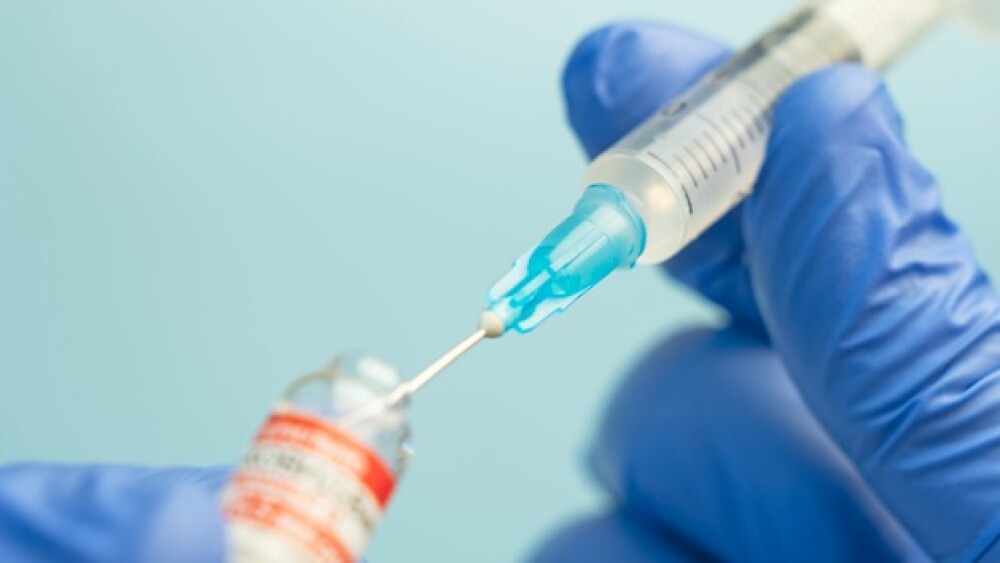The biotech’s experimental vaccine has shown a neutralizing response to XBB sublineages of COVID-19, which currently dominate new cases in the U.S. and Europe.
Pictured: Syringe drawing up vaccine/iStock, Diy13
Novavax’s vaccine candidate against new sublineages of COVID-19 is showing promising results in small animal and non-human primate studies. The company announced Tuesday that its XBB COVID vaccine candidate induced neutralizing antibody responses in the EG.5.1 and XBB.1.16.6 subvariants, dubbed Eris and Fornax, respectively.
Data from the CDC and European Union Agency for Disease Prevention and Control point to the XBB variant as a major concern, with a majority of recent cases being XBB variants in both the U.S. and the European Union.
Currently, Novavax is in the process of submitting applications for its XBB.1.5 COVID vaccine candidate to regulatory authorities. If approved, the shot would be the only protein-based non-mRNA vaccine option available for the fall vaccination season, according to the company.
Filip Dubovsky, Novavax’s president of research and development, said in a statement that the company has “a lot of confidence” in its updated COVID vaccine and is “working diligently with global regulatory bodies to ensure our protein-based vaccine is available this fall.”
The Novavax COVID-19 Vaccine, Adjuvanted has been neither approved nor licensed by the FDA. It was authorized for emergency use by the FDA in July 2022, with the agency at the time saying the available data “support that the known and potential benefits of the vaccine outweigh its known and potential risks in people 18 years of age and older, and that this vaccine may be effective in preventing COVID-19.”
Data available at the time from 17,200 patients given the vaccine showed 90.4% effectiveness in preventing mild, moderate, or severe COVID-19, with the most commonly reported side effects being headaches, fatigue, joint pain, redness or swelling at the injection site, nausea/vomiting, muscle pain, and fever. The agency did note that clinical trial data “provide evidence for increased risks” of myocarditis and pericarditis in patients given the vaccine.
Pfizer and Moderna both recently announced that their respective updated vaccines are showing responsiveness to Eris and Fornax. This came after a June 2023 announcement from the FDA that the fall season’s vaccines should focus on the XBB.1.5 variant which, according to data from February 2023, accounted for 65% of all new cases of COVID in the U.S.
The unanimous recommendation by the FDA’s June advisory panel, with no abstentions, set the stage for Novavax to make a comeback of sorts. The company released data that month showing its monovalent vaccine had a neutralizing effect against both XBB.1.5 and XBB.1.16.6, the then-dominant and emerging subvariants of XBB, respectively.
Earlier this month, Novavax posted a surprise $58 million net income in the second quarter of 2023 compared to a net loss of $510 million in the same period last year, thanks to aggressive cost-cutting in the first quarter and laying off 25% of its staff in May. However, the company faces significant challenges as its turnaround strategy is dependent on the successful launch of its updated COVID vaccine this fall.
Novavax CEO John Jacobs said in the second-quarter earnings call that “there is still much work to be done with significant execution risk ahead of us as we seek regulatory authorizations for our first updated version of Nuvaxovid” and prepare to “compete in the U.S. market as it converts to a commercial model for the first time.”
Connor Lynch is a freelance writer based in Ottawa, Canada. Reach him at lynchjourno@gmail.com.





